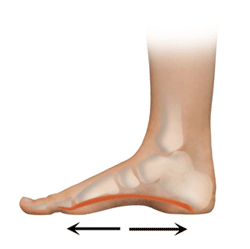
Assessing Foot Health for Flat Feet
Flat feet, also known as pes planus, is a condition where the natural arch of the foot is lost. Many people dismiss it as a minor issue, but it can lead to heel pain, knee strain, back discomfort, and long-term postural problems if left unaddressed.
Recent research has revealed an important link between body weight, height, and the likelihood of developing flat feet—especially among young adults.
Why Flat Feet Matter
- The arch of your foot is not just for shape—it acts as a shock absorber and helps in the smooth transmission of body weight during walking and running. When the arch collapses, the entire body’s balance and mechanics are affected.
- Obesity and being overweight put additional stress on the arch, making young adults more prone to flat feet. Studies have consistently shown that a higher BMI increases the chances of developing this condition.
The Research Behind the Predictor
A study conducted on 1,000 students aged 18–25 years in Jaipur examined how BMI and height relate to the health of the medial longitudinal arch of the foot. Using advanced clinical tests, researchers confirmed a strong association between these factors and the presence of flat feet.
The outcome of this research is a scientifically validated predictive approach that can estimate the risk of flat feet in young adults with high accuracy.
Why Early Detection is Important
Identifying flat feet early can help in:
- Preventing long-term musculoskeletal problems
- Avoiding pain in the foot, knee, and back
- Guiding lifestyle changes like weight management
- Using orthotics or physiotherapy exercises for correction
Try the Flat Feet Predictor
At flatfeetpredictor.com, we’ve made this science accessible to everyone. By entering just a few basic details like your BMI and height, you can instantly know whether you may be at risk of flat feet.
At 👉 Take a minute today to check your foot health. Early awareness is the first step toward prevention and better mobility for life.
 Live Classes
Live Classes





